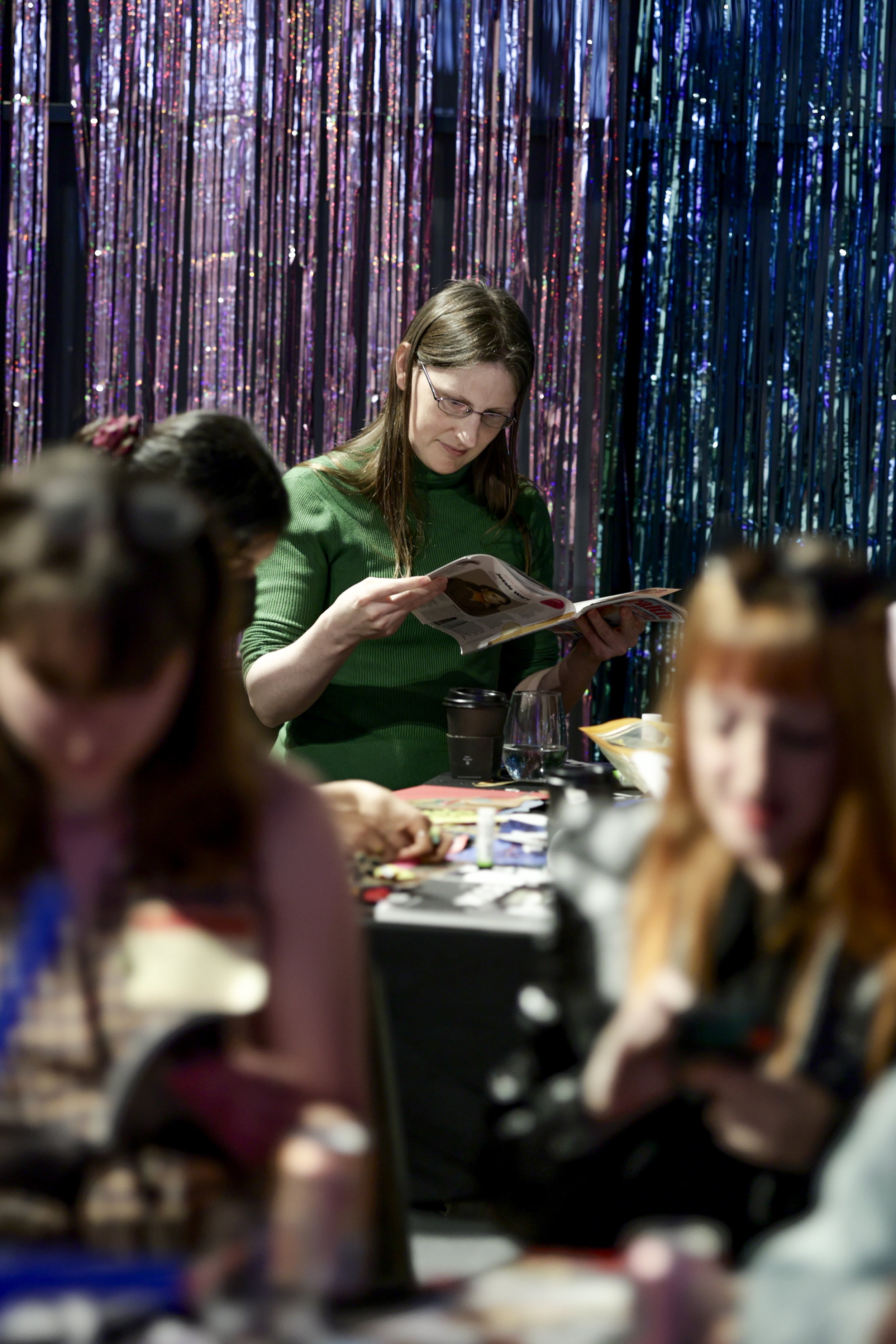Finding queer spaces outside of nightlife
BFI Flare’s “Can We Be Friends?”, creating an inclusive safe space for LGBTQIA+ community in London
As someone new to London and eager to explore its queer spaces, I embraced the opportunity to spend a blustery Saturday afternoon in the BFI Blue Room discussing films and making friends.
Upon entering the venue, guests were greeted with a warm welcome from the organisers followed by a vibrant set-up: rainbow streamers, a projection of discussion prompts, tables decked with crafts and board games, and clusters of earnest faces smattered around the room chatting easily about the films. I was immediately touched by the visible eagerness of people to strike up new conversations and find space for newcomers to join their circles. One of the organisers prompted me to contribute to their wall of sticky notes in response to the question: “What does queer friendship mean to you?” I wrote something along the lines of “family, belonging, cosiness, connection” before adding it to the display and joining the crowd.
In March, the BFI Flare, London LGBTIQ+ Film Festival hosted a casual drop-in community event aimed at LGBTQ+ people seeking new connections and friendships in the city. Named Can We Be Friends?, the event served as a natural extension of the film programme “Queer/Platonic” that ran the same afternoon, a screening of six queer film shorts which celebrated queer friendships and platonic intimacy. The programme explored queer kinship in its varying forms from lifelong childhood bonds to fresh connections in an unfamiliar city. Following the diverse themes presented in the films, the Can We Be Friends? community event provided a relaxed space for the audience to connect with one another and share their thoughts on the programme.
The inspiration behind this event came about when BFI programmers Rhianna Ilube and Wema Mumma realised that BFI Flare offered more than just a showcase of queer cinema – it provided a precious space for individuals to seek community, forge new friendships and discuss the queer screen representations. Ilube explained:
“Whilst programming for Flare, I realised that many people attend the festival not just for the films, but to find a sense of community and new connections. Given that we have thousands of people pass through the BFI during the festival, we wanted to make the most of having this audience in the building and create a dedicated space for people to actually meet, talk, relax”.
On the importance of inclusivity in these spaces, Mumma added:
“I think many of the queer events in London happen to be clubbing events, which don't necessarily always facilitate spaces for people to make friends. A lot of the queer spaces in London are also White, which may unintentionally lead to the alienation of queer people of colour, and other marginalised queer people. For 'Can We Be Friends?', we wanted it to be diverse and cater to a broad range of queer people, so we invited along some queer community organisations who are already working to include these communities [(Transkaters, Social Black Queers, The Love Tank CIC, miseryparty, The Common Press, A Whole Orange Matchmaking]).”
Indeed, while LGBTQ+ nightlife is thriving and vibrant as ever, there remains a need for intentionally casual and inclusive spaces to provide an opportunity for individuals with other interests to make friends and find community. Organised activities like LGBTQ+ morning yoga, board game nights and zine-making workshops - to name a few - create these spaces for queer people to find belonging and celebrate their identities.
While attending these kinds of events can be daunting at first, it’s important not to go into them with the expectation of making a host of new friends but to embrace the event as an enjoyable experience in its own right.
If you do come out with a budding new friendship – great! If not, there’s always next time. It’s also worth remembering that genuine connections can still blossom organically in the city. This sentiment is depicted in one of the film shorts featured on the Queer/Platonic programme, “Baby Gay”, directed by Florence Winter Hill, as a small-town girl, Aria, moves to London and stumbles upon a group of new queer friends on her way home from a night out.
If nothing else, Rhianna Ilube and Wema Mumma’s Can We Be Friends? worked beautifully as a standalone community event. It created a safe space amidst the bustle and overwhelm of the big city for queer people to spend their afternoon playing games, crafting and discussing queer film shorts. However, the afternoon was also a successful catalyst for future friendships and connections, as people exchanged socials and learnt of other events they could attend in the future.
Personally, I was grateful to spend the afternoon in a pocket of my community and enjoy a home away from home as I found my footing in London.
If you’re interested in discovering similar events, Rhianna Ilube recommends website Outsavvy, and venue The Common Press.
By Sadhbh Gaughan
Photography: Millie Turner












